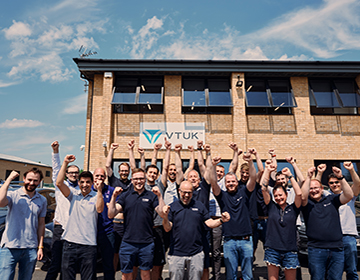Gross yields rose on all types of buy-to-let property in the third quarter, apart from semi-commercial – for example, flats over shops. Yields on Houses in Multiple Occupation (HMOs) jumped from 9.2% to 11.1%.
According to the latest Mortgages for Business buy-to-let index, the driving factors behind the increase were a combination of falling property prices and high tenant demand.
David Whittaker, managing director of Mortgages for Business, said: “The owner-occupier market is sinking deeper into the mire and is dragging property prices down with it.
“It’s great news for buy-to-let investors, who are able to snap up cheaper property, usually at a higher LTV because lenders are understandably willing to advance more when property prices are lower.
“It’s a fairly simple equation: suppressed property prices, plus strong demand for rented accommodation, equals higher yields for landlords.
“Investors are being canny and targeting areas where house prices are particularly squeezed. Anywhere outside the South-East is a particularly rich seam at the moment.”
According to the index, yields on ‘vanilla’ buy-to-let increased from 6.1% to 6.7% over the quarter, thanks largely to the average property value of vanilla investments falling by 3% between Q2 and Q3 to £210,197.
This helped push up the average LTV from 64% to 68%, with lenders more willing to grant higher LTV deals thanks to lower property prices.
Similarly, the jump in yields for HMOs was triggered by a sharp increase in refinancing of cheaper property. The average property value in HMO deals fell 41% compared to last quarter as more investors refinanced on properties under £200,000, with the launch of Keystone buy-to-let range offering investors a wider range of financing options on cheaper property.
Yields on Multi-Unit Freehold Block property rose for similar reasons. Gross yields increased from 7.5% to 8.8% between Q3 and Q4 as average property values in deals in this sector decreased by 33% from £442,223 to £297,938.
Bucking the market trends was semi-commercial property, where gross yields fell from 7.4% to 7.1% between Q2 and Q3, despite the average property value falling by 26% from £1,054,913 to £779,761. Average loan sizes remained relatively flat, with lenders like RBS Group asking investors to refinance elsewhere as they look to reduce their exposure to this type of property.
The number of lenders operating in buy-to-let remained at 25, while the number of products increased slightly to 465 from 456 in Q2.









%20(002).png)

.jpg)






Comments
historically all bubbles burst and this is a big one......darling and king said they had to reduce interest rates otherwise the economy would implode
in the 90s lenders required your salary to cover both mortgages because rent could not be guaranteed
lenders will drop btl mortgages like lead balloon when they realise its a financial disaster
all imo of course
Thats the crux of your problem dave; you think the rest of us don't understand the financial world or how it works.
I don't believe for one minute that interest rates will stay low; I'm only surprised they haven't gone up before now. What I don't believe in is your view that if interest rates go up the whole market will implode and allow first time buyers to jump into home ownership.
I also remember estate agency being very busy when interest rates were up in double figures - that when a lot of investors were first getting into BTL.
The banks made an error in over lending with low security; they won't be quick to make that mistake again so you thinking they will relax deposit requirements anytime soon is a little naive in my opinion.
Coupled with the previous governments appalling financial mismanagement, the banking crisis caused devastation to the economy requiring hard decisions to reverse it; a handful of people wittering about how they can't afford to buy a house isn't going to change the route we all need to tread for the foreseeable future.
banks have already priced in big falls which is why they require such large deposits now
as prices fall,this will relax
in the 90s nadir,banks offered 90-100% mortgages,25% of which was hedged via another financial institution and a mortgage guarntee premium paid by the buyer on completion as insurance against default
I'd be more worried if like you I believed interest rates will remain at 0.5% forever,prices won't fall and rental demand will remain so strong
"as prices fall 'renters'(who hate renting btw) will buy rather than rent as banks will lend 90-100% mortgages "
hahahahahahahahahahahahahahahahahah breath hahahahahahahahahahahaha
Banks lending 100% on a falling asset? in your very odd dreams dave, in your dreams
Two loons yacking to themselves!
now is not the time to be in btl quite agree
as prices fall 'renters'(who hate renting btw) will buy rather than rent as banks will lend 90-100% mortgages
who'se gonna rent all those properties then?
also most lenders have a nequity clause and so if you btl falls in price,you may be forced to sell at a loss
all creating a downward spiral in prices
thank god for that
House prices are falling so now is a great time to get into BTL... as your prospective tenants take advantage of lower prices themselves to become owner-occupiers???
higher than normal yields indicate problems ahead...just like you should not buy shares 'cos the yield is 7-10% say
this indicates problems with the value of the underlying asset
for instance greek debt yields over 800%